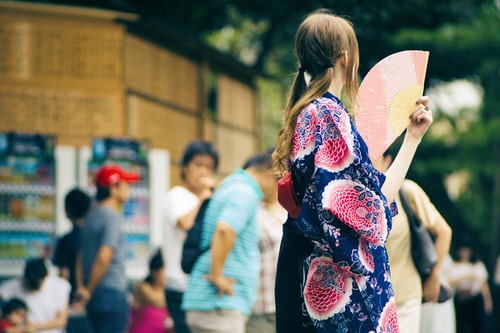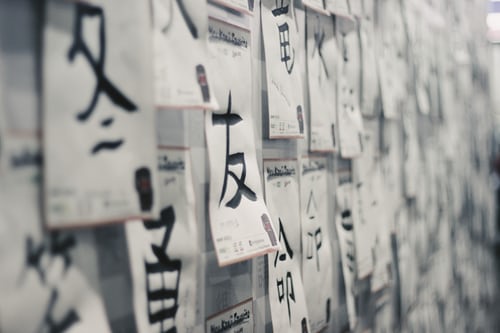みなさんコンニチハ!お元気ですか?
異文化コミュニケーション研究所(R)所長の島崎です。
Everyone, Konnichiwa! How are you?
This is Shimazaki, Director of the Institute for Cross-cultural Communications(R).
現代は、インターネットのお陰で、留学生の皆さんは、自国の家族や友達と話をすることが簡単にできます。
Thanks to the Internet, international students can easily talk with their family and friends anytime anywhere.

これはとてもありがたいことです。でも、せっかく日本に来ているのですから、この夏は、日本人の友達と遊んでください。
This is very appreciated. However, since you are stay here in Japan, please play with my Japanese friends this summer.
「でも日本人の友達なんていない…」と思っていませんか?
Don’t you think “But I don’t have any Japanese friends …”?
そんなときには、学校の先生に相談するのが一番良いでしょう。
In such cases, it is the best to ask your school teacher.
また、あなたの国の文化や言葉に興味を持つ日本人もたくさんいるので、インターネットで調べて、そのサークルにアプローチすることを勧めます。
There are also many Japanese people who are interested in your culture and language, so I recommend that you check the internet and approach the circles.
また、あなたが日本の文化に興味があるのなら、そのサークルに申し込むと、皆さん優しく接してくれます。
Also, if you are interested in Japanese culture, please apply to the “circle”. Everyone will be kind to you in the gruop.

せっかくのチャンスです。楽しみながら、日本語上手になってください。
This is a great opportunity. Please improve your Japanese while having fun.
┏━┓
┃1┃日本の夏(Japanese summer)
┗━┛
かつて日本は農業国家でした。大半の人たちは農業に従事して、生活をしていました。
Japan was once an agricultural nation. Most people were engaged in agriculture and lived.
そのため、今でもその頃の名残りで、さまざまな行事が農業と関連しています。
Therefore, various events related to agriculture are still a remnant of those days.
たとえば、この時期には地域ごとに「お祭り」が開催されます。この時期は、田んぼに稲を植え終わった頃です。
For example, a“festival”is held for each region during this period. This is the time when rice has been planted in rice fields.
豊穣を神様に祈るために行います。
This is done to pray fertility to God.
わっしょい、わっしょい、と担ぐ「お神輿」は、神様の乗り物です。
We say “Wa-shoi! Wa-shoi!” and hold “Omikoshi” which is the vehicles of God.
浴衣を着て、うちわを持って、日本の夏を堪能してくださいね。
Please wear a yukata, have a round fan and enjoy the summer in Japan.

┏━┓
┃2┃摩訶珍(Makachin)編集後記 [Editor’s Note]
┗━┛
日本人も、時々読めない「漢字」が結構たくさんあります。
There are quite a few “kanji” that Japanese people sometimes cannot read.
特に、地名や人の名前は、とっても難しいものです。
In particular, “place” names and names of “people” are very difficult.
ですから、習った漢字を全部覚える必要はありません。でも、読めなくても大体の意味が分かるようになる必要があります。
So you don’t have to learn all the kanji you learned. But even if you can’t read them, you need to understand what it means.
漢字は、その文字自体に意味があるからです。
This is because Kanji has its own meaning.
外国の人にとっては大変かもしれませんが、あきらめずに、一つ一つ習得してください。
It may be difficult for foreigners, but please learn one by one without giving up.

・・・・・・・・・・・・・・・・・・・・・・・・・・・・・・・・・・・
・就活中の外国人留学生の皆さん!大学では教えてくれない日本で生活する・
・ための基礎知識、日本企業で働くために知っておいた方が良いことなど、・
・皆さんにお役に立つ情報をお送りします。 質問も受け付けますよ!(^^)・
・・・・・・・・・・・・・・・・・・・・・・・・・・・・・・・・・・・
△▼△▼△▼△▼△▼△▼△▼△▼△▼△▼△▼△▼△▼△
異文化コミュニケーション研究所(R)のミッション
『日本を、世界中の優秀な人財が活躍する国にする』
~ 多様性のあるglobalforce(高度外国人)を活躍へ導く ~
△▼△▼△▼△▼△▼△▼△▼△▼△▼△▼△▼△▼△▼△
───────────────────────────
┘┘┘┘┘異文化コミュニケーション研究所(R) (iCCC)
┘┘┘┘ http://www.globalforce.link https://globalforce.careers/
┘┘┘ 横浜市神奈川区青木町3-15 SSビル201号室
┘┘ Tel:045-307-8248(代) FAX:045-461-1577
┘ 代表取締役社長 所長 島崎ふみひこ
contact@globalforce.link
───────────────────────────
(当研究所は、株式会社フィギュアネットの事業部です。)